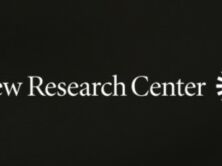WikiLeaks tweeted about the subpoena for its Twitter information. (Credit: Twitter, WikiLeaks)
The U.S. government has subpoenaed Twitter for information about WikiLeaks’ and several individuals’ accounts, including those people in contact with Julian Assange, the Associated Press reported.
According to the AP, the subpoena was filed Dec. 14 by “the U.S. District Court for the Eastern District of Virginia,” and called for Twitter to “hand over private messages, billing information, telephone numbers and connection records of accounts run by Assange and others” from Nov. 1, 2009 on.
The AP stated that the subpoena “ordered Twitter not to disclose its existence to Assange or any of the others targeted.” The AP explained that it received a copy of the subpoena. The AP reportedly asked, but hasn’t heard yet, if Facebook or Google had received subpoenas as well.
The subpoena names Assange, “U.S. programmer” Jacob Appelbaum, Bradley Manning, “Icelandic parliamentarian and one-time WikiLeaks collaborator” Birgitta Jonsdottir and hacker Rop Gongrijp, the New York Times reported.
Salon’s Glenn Greenwald suggested that Jonsdottir and Gonggrijp were named in the subpoena because of “their involvement in the release of” the video “Collateral Murder.”
ASAP New Network reports, “Of the five individuals named in the subpoena, only two — Mr. Manning and Mr. Appelbaum — are American citizens. The others include an Australian, Mr. Assange; Ms. Jonsdottir, of Iceland; and Mr. Gonggrijp, a Dutch citizen.”
WikiLeaks posted several messages on Twitter commenting critically about the subpoena, including:
- Jan. 7th’s “US demands Twitter handover private user data on WikiLeaks”
- Jan. 8th’s “If the Iranian govt asked for DMs of Iranian activists, State Dept would be all over this violation of ‘Internet freedom’ #doublestandards” (NOTE: “DMs” are shorthand for direct messages, a private feature on Twitter. Tweets are set as public information to any Twitter user, unless a Twitter user has “protected their tweets” [requiring users to approve anyone who can see their tweets]. However, regardless of privacy settings on Twitter accounts, direct messages are private).
- Jan. 8th’s “There are many WikiLeaks supporters listed in the US Twitter subpoena”
- Jan. 9th’s “US govt secret subpoena for Julian Assange, WikiLeaks & supporters, full text http://is.gd/klq3r”
- Jan. 9th’s “Note that we can assume Google and Facebook also have secret US government subpoenas. They make no comment. Did they fold?”
- Jan. 9th’s “WARNING all 637,000 @wikileaks followers are a target of US gov subpoena against Twitter, under section 2. B http://is.gd/KoZIA“
Vanity Fair on WikiLeaks & News Outlets
Vanity Fair’s Sarah Ellison wrote a lengthy piece about Assange, WikiLeaks, and their relationship with news organizations in a Feb. 2011 story “The Man Who Spilled the Secrets.”
In it, Ellison describes “a clash of civilizations — and ambitions” between Assange and the media outlets with an advance look at the documents.
Calling Assange and the outlets’ “partnership…troubled from the start,” Ellison detailed the process of news outlets coordinating with each other and WikiLeaks. She also explained that The Guardian obtained a leak of the forthcoming WikiLeaks diplomatic cables leak from freelance journalist Heather Brooke and as a result could have published stories on the documents outside of any agreement with Assange.
According to Ellison, The Guardian, the Times and Der Spiegel intended to publish their stories Nov. 8 using Brooke’s copy of the documents, as opposed to Assange’s. Assange threatened to sue The Guardian ” if it went ahead and published stories based on the quarter of a million documents” he had given the newspaper in advance of the leak. The Guardian didn’t end up publishing outside of any agreement with WikiLeaks, though.
Brooke’s leak of the documents led to comparisons of the tables being turned on Assange. Assange “had become the victim of his own methods: someone at WikiLeaks, where there was no shortage of disgruntled volunteers, had leaked the last big segment of the documents, and they ended up at The Guardian in such a way that the paper was released from its previous agreement with Assange—that The Guardian would publish its stories only when Assange gave his permission.”
Ellison opined that The Guardian and WikiLeaks as opposites, calling them both “two desperately ambitious organizations that happen to be diametric opposites in their approach to reporting the news.” The Guardian, as Ellison described it, is “one of the oldest newspapers in the world, with strict and established journalistic standards,” whereas WikiLeaks has “no standards at all” save the goal of transparency.
“The Guardian, like other media outlets, would come to see Assange as someone to be handled with kid gloves, or perhaps latex ones—too alluring to ignore, too tainted to unequivocally embrace. Assange would come to see the mainstream media as a tool to be used and discarded, and at all times treated with suspicion.”
Ellison also claimed that the newspapers lobbied for the reactions, which he states wasn’t Assange’s priority. David Leigh is quoted as describing the redaction process:
“Neither us nor Der Spiegel nor The New York Times was ever going to print names of people who were going to get reprisals, anymore than we would do on any other occasion,” David Leigh, The Guardian’s investigations executive editor, is quoted as saying. “We were starting from: ‘Here’s a document. How much of it shall we print?’ Whereas Julian’s ideology was: ‘I shall dump everything out and then you have to try and persuade me to cross a few things out.’ We were coming at it from opposite poles.””
Ellison reported that The Guardian’s stories on cablegate “drove more than four million unique visitors to The Guardian’s Web site, its largest single day of traffic ever.”
See the complete article on Vanity Fair’s website here. iMediaEthics is writing Twitter for commment.
UPDATE: 1/9/2011 9:36 AM EST: Added information explaining what a direct message is.






